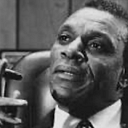Member-only story
Jazz and the African-American Truth
A global gumbo art form that took centuries to cook
Birth
The Spanish tinge. Embedded African rhythms. A sensual beauty of sound and emotion. Tell me a bedtime, nighttime, daytime story. In early jazz, out of New Orleans, early pioneers like Freddie Keppard who was the Trumpet King of New Orleans after Charles “Buddy” Bolden but before Louis Armstrong, did something that is the essence of humanity: they created together. They deferred. They created space for one another. They bonded.
My first trip to New Orleans was in 1995. I walked the streets of the city and felt like I had left the United States. I could not get enough of it. I understood how one could create here. I would see men ride down the streets on horses amongst cars. The hot smells and funk of a city that seems as ancient as Baghdad. This was before the storm named Katrina.
African culture is everywhere in New Orleans. And European occupation. I ate gumbo at a joint called Napoleon’s. Yes, the French general. The city talks back to you like that. Africans, Europeans, Creoles, and all sorts of other cultures, ethnicities, and traditions are here and the clash is ongoing. The music is that clash. Today, we call it African-American music. African-American classical music. Jazz. Jass. The music.
